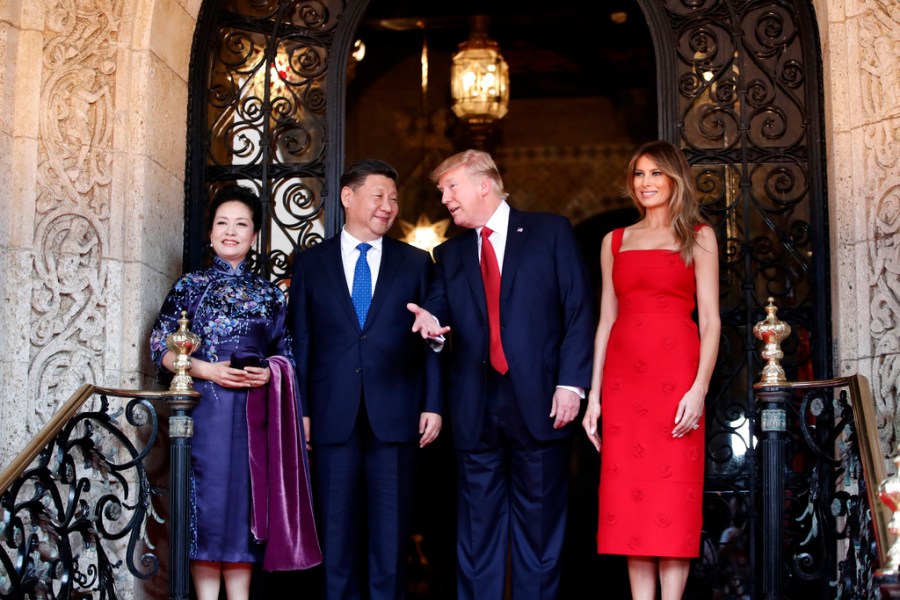
How Donald Trump intends to redefine America’s relationship with Beijing is a question of global significance, with ripple effects likely to impact international trade, supply chains and security far beyond the Pacific. Few nations can afford to remain indifferent to what could be a seismic shift in U.S.-China dynamics. Yet, the signals so far are a study in contradiction.
On his first day back in office, Trump signed an executive order allowing TikTok — the Chinese-owned platform long flagged as a national security concern — to resume operations in the U.S. Despite the move, TikTok’s future remains uncertain, tethered to Trump’s insistence that the app be at least 50 percent American-owned. In an unexpected twist, Trump expressed a fondness for TikTok, crediting the app with swaying younger voters in his favor during the election. “I have a warm spot in my heart for TikTok,” he remarked, leaving many to wonder if this sentiment reflects strategic pragmatism or merely another unpredictable turn in his evolving approach to China.
In the opening days of Trump’s administration, the world finds itself in suspense over how far his trade agenda will go in reshaping the global economic order. The stakes were underscored when Chinese markets wavered the day after Trump announced plans to impose a 10 percent tariff on Chinese imports. While less severe than the 60 percent tariff floated during his campaign, the announcement sent tremors through international markets, signaling a volatile path ahead for U.S.-China relations.
Yet Trump’s signature style remains true to form — blunt, transactional and focused on cultivating personal rapport. After what he described as a “good” phone call with Chinese President Xi Jinping last month, Trump struck an optimistic tone on social media, pledging mutual efforts to “solve many problems together” and to immediately work toward “making the world more peaceful and safe.”
While his ideological rigidity may pale compared to his predecessor, Trump’s reliance on personal deal-making and strongman diplomacy has raised fresh questions about how sustainable such an approach can be in navigating the complexities of the U.S.-China relationship. The mantra of “Make America Great Again” remains an evolving narrative, deeply entwined with Trump’s vision of restoring American primacy.
In his first term, Trump framed his presidency as a crusade to wrest control from an out-of-touch elite and redirect national focus to grassroots concerns. His rhetoric decried foreign nations exploiting American industries and promised to rectify what he saw as systemic imbalances in global trade, with China as the primary antagonist. Central to this vision was a pledge to revitalize domestic manufacturing and overhaul crumbling infrastructure, ambitions intertwined with an aggressive trade strategy marked by tariffs. Alongside economic promises, Trump vowed to clamp down on illegal immigration and counter foreign criminal elements, positioning his administration as a bulwark against perceived threats to national security.
Eight years later, Trump’s rallying cry endures. He has amplified calls for urgent immigration reforms and doubled down on efforts to bring manufacturing back to American shores. His agenda leans even more heavily on the idea of reclaiming the United States’ preeminent global position, presenting a nationalist narrative in an era of fierce geopolitical competition.
In his inaugural address, Donald Trump offered a curious mix of bellicosity and conciliation. He erroneously claimed China controls the Panama Canal: “We didn’t give it to China, we gave it to Panama, and we’re taking it back” — a statement more emblematic of his rhetorical bravado than geopolitical fact.
Yet, alongside that statement came a striking declaration: “We will measure our success not only by the battles we win but also by the wars that we end. And, perhaps most importantly, the wars we never get into. My proudest legacy will be that of a peacemaker and unifier.” Such words suggest a president who might steer clear of conflict over Taiwan, the flashpoint island where American policy clashes with Beijing’s unwavering stance that reunification is non-negotiable.
However, the composition of Trump’s administration tells another story. It brims with ardent China hawks, from Secretary of State Marco Rubio — twice sanctioned by Beijing for his outspoken critiques — to Defense Secretary Pete Hegseth and national security adviser Mike Waltz. This ideological tilt underscores a paradox: a leader professing peace while assembling a team primed for confrontation with China.
Rubio’s words during his Senate confirmation hearing only reinforced this narrative, describing China as “the most potent, dangerous and near-peer adversary this nation has ever confronted.” Such rhetoric signals a hardline stance that is unlikely to foster Beijing’s trust. Meanwhile, Trump’s enduring faith in tariffs as a blunt instrument of diplomacy remains unshaken. He also lambasted the European Union for being “very, very bad to us” but has reserved harsher language for China in the past.
Yet the atmosphere is not without a glimmer of diplomacy. Xi reciprocated Trump’s recent overtures following their phone call, expressing a desire for a “new starting point.” Reports suggest that Trump is eager to visit Beijing within his first 100 days, signaling an openness to negotiation.
For Trump, the ideological chasm between Washington and Beijing, which so agitates Biden and bipartisan hawks in Congress, is secondary. What matters more is his confidence in his own ability to negotiate, to forge bonds with formidable leaders, and, perhaps, to strike a deal that redefines a fraught relationship — one that teeters perpetually between rivalry and reluctant cooperation.
Donald Trump’s conviction that he can broker a “fabulous bargain” with Xi is grounded in his singular confidence in dealmaking. Yet, some of the hurdles to such an agreement are largely of Trump’s own making. His first-term trade war with China unleashed a cascade of tariffs and legislative moves that accelerated economic decoupling — a trend that may now have its own momentum, regardless of policy shifts.
While Trump has reshaped the Republican Party in his image, resistance to a broad reconciliation with China remains entrenched. Even with GOP control of Congress, skepticism abounds about any potential deal. Lawmakers on both sides of the aisle remain wary of compromises that might soften the posture toward Beijing. Ultimately, the question is whether Trump’s confidence in his abilities can overcome a deeply altered landscape of bilateral relations — one fraught with mistrust, ideological divides and a global chessboard tilted by economic fragmentation.
Imran Khalid is a physician and has a master’s degree in international relations.











